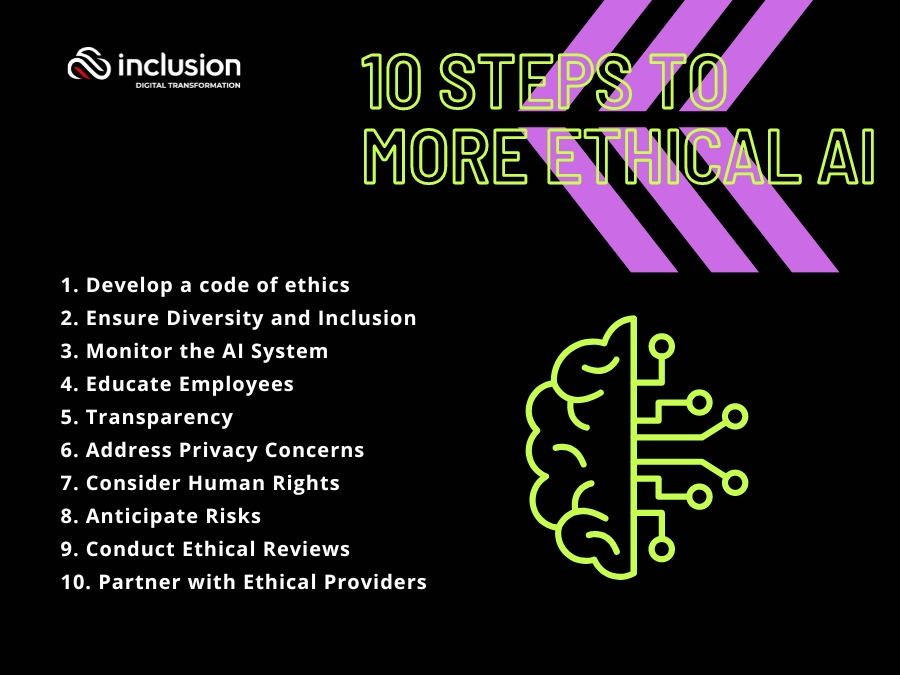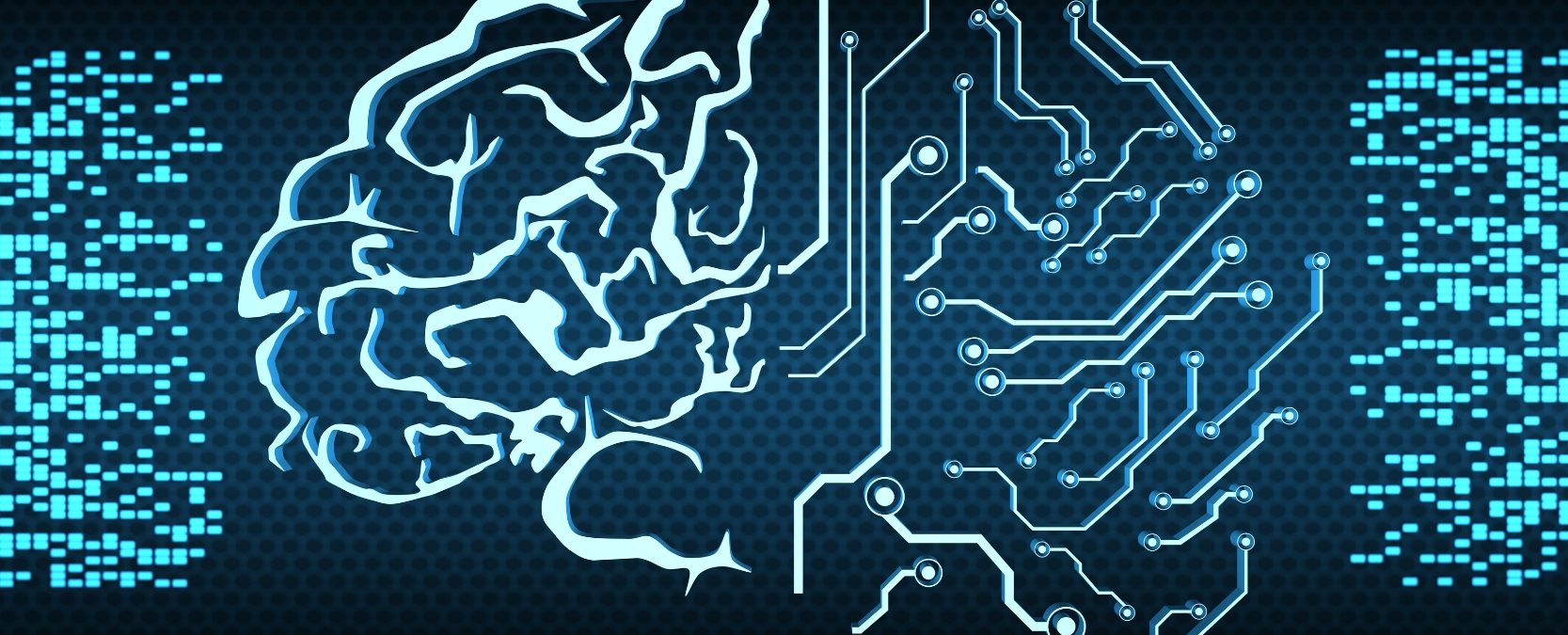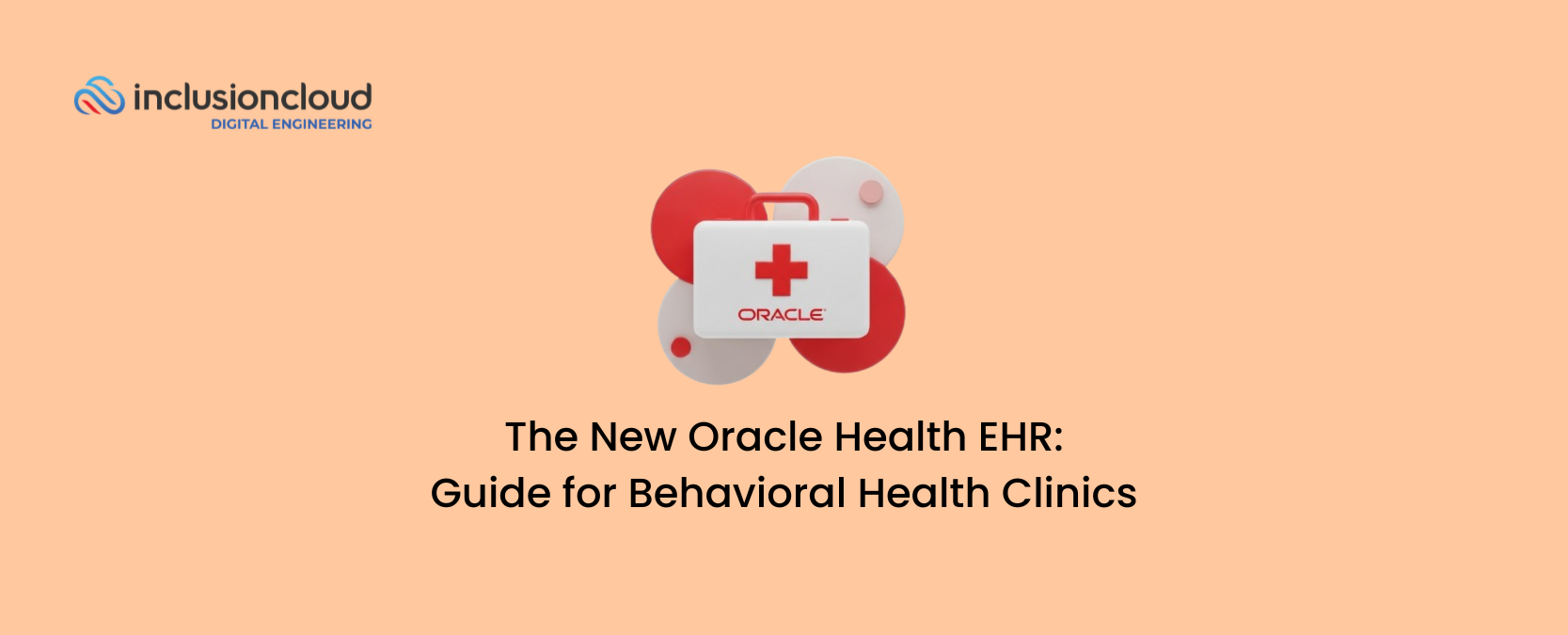Artificial Intelligence has become increasingly popular in different industries, from producing different goods in factories to healthcare and finance. At the same time, there has been growing concern about the ethical implications, as AI plays an increasingly decisive role in people’s daily lives.
In this article, we will analyze some of the aspects you should consider so that AI developments are aligned with values that are positive for society and beneficial for everyone.
Why AI Is in Trend?
AI has been making remarkable changes to how we live and work, transforming industries and creating new possibilities. Machine Learning, a subset of AI, is becoming increasingly popular for its ability to analyze and process large data sets. This technology is used in Cybersecurity, Cloud Computing, Full-Stack Development, and DevOps/Agile methodologies, making it essential for businesses to adopt AI to stay competitive.
Why Ethical AI Is Important for Business?
Ethical AI is crucial for businesses because it ensures that the technology they use aligns with their values and ethical standards. Implementing ethical AI also helps businesses gain customer trust, improve brand reputation, and avoid legal issues. In addition, ethical AI is essential for ensuring that AI is used to benefit society.
What Is AI Ethics?
AI ethics refers to the principles and values that guide the development and use of AI systems. The goal of AI ethics is to ensure that AI is developed and used in ways that are fair, transparent, accountable, and beneficial for society. AI ethics addresses a wide range of issues, including data privacy, bias, discrimination, transparency, accountability, human rights, and social impact.
AI ethics is a rapidly evolving field, and many organizations and institutions are working to develop frameworks and standards to guide the development of these technologies.
Ethical Concerns of AI in 2023
There are several primary concerns related to AI today. One of the biggest concerns is bias and discrimination in AI systems, which can result in unfair treatment of individuals or groups. This bias can be unintentional and result from the data used to train the AI system.
Data privacy is also a significant concern, as personal data is collected, processed, and stored by AI systems. Ensuring transparency and accountability in AI systems is another concern, as it can be difficult to understand how AI systems make decisions. Finally, ensuring that AI systems do not violate human rights or create a negative social impact is an essential concern.
Generative IA and intellectual property
Other problems that generative AIs such as ChatGPT, Copilot, Midjourney, and Stability AI face are lawsuits for infringing copyright laws. The controversy revolves around the issue of the images and texts that the algorithms are trained on, as many artists and content creators have filed cases in different courts.
In this sense, the Federal Trade Commission (FTC) is starting to set a precedent by forcing technology companies to perform an algorithm disgorgement. This means destroying algorithms and models built upon unfairly or deceptively sourced data.
Redesign of Virtual Assistants
The paradigm shift that occurred in the technology industry with respect to virtual assistants is remarkable. Satya Nadella, CEO of Microsoft, noted that voice assistants are “dumb as a rock.”
Voice assistants that were popular a few years ago, such as Siri and Alexa, have now lost much of the interest they had generated. These voice assistants are command-and-control systems, meaning they can understand a list of questions and answers to help the user.
The new virtual assistants respond to the user in a different way: Virtual assistants such as ChatGPT, respond to the user using natural language processing (NLP) and AI. When the user asks a question or requests information, the virtual assistant processes the request and searches for the best possible answer through its database and machine learning algorithms.
After analyzing the user’s request, the virtual assistant can respond with a predetermined or customized answer that fits the user’s question or request. In addition, virtual assistants can ask follow-up questions to obtain more information and provide a more accurate and relevant response.
It is important to keep in mind that virtual assistants cannot always provide perfect answers, especially on complex or uncommon questions. However, with time and experience, the virtual assistant can improve their skills to provide more accurate and relevant answers.

Are you looking for job opportunities with top U.S. companies? Check out our open positions here.
10 Steps to More Ethical AI
These are 10 essential aspects to carry out ethical uses and developments of AI systems:
1. Develop a code of ethics
Creating a code of ethics is the first step in developing ethical AI. This code should outline the values and principles that your AI system should follow. The code should be created in collaboration with relevant stakeholders, such as employees, customers, and industry experts. This will ensure that the code reflects the values and needs of all parties involved.
2. Ensure diversity and inclusion
Ensuring that the data used to train your AI system is diverse and inclusive is crucial to avoiding perpetuating biases. This can lead to discriminatory outcomes that can harm individuals or groups. Therefore, it is essential to ensure that the data used is representative of different genders, races, ethnicities, and other diverse factors.
3. Monitor the AI system
Regular monitoring of the AI system is essential to ensure that it is performing as intended and not causing harm. This includes regular testing, auditing, and analysis of the system. Monitoring also involves identifying and addressing any errors or issues that may arise. This will help ensure that the AI system continues to function ethically.
4. Educate employees
Educating employees on the ethical implications of AI and providing them with training on how to develop and use ethical AI is essential. This will help ensure that all employees involved in developing or using AI systems understand the importance of ethical AI. Providing training will also help employees understand how to identify and mitigate potential ethical issues.
5. Transparency
It is crucial to be transparent about how your AI system works and what data it uses. Transparency helps to build trust with stakeholders, such as customers and employees. It also helps to ensure that the AI system is not used to exploit individuals or groups. Therefore, it is essential to be transparent about the data used to train the AI system, the algorithms used, and how decisions are made.
6. Address privacy concerns
Addressing privacy concerns is an essential aspect of developing ethical AI. Privacy concerns can arise when personal data is collected, processed, or stored. It is essential to ensure that the AI system is compliant with data protection regulations. Additionally, ensuring that personal data is collected and processed securely is essential to protecting individual privacy.
7. Consider human rights
AI systems can have unintended consequences that may harm individuals or groups. Therefore, it is essential to consider human rights when developing and using AI systems. This includes ensuring that the AI system is not used to discriminate against individuals or groups.
8. Anticipate risks
Anticipating potential risks and taking steps to mitigate them before they occur is crucial. Risks can arise from the data used to train the AI system, the algorithms used, and how the AI system is used. Therefore, it is essential to anticipate potential risks and develop strategies to mitigate them. This will help ensure that the AI system functions ethically and avoids causing harm.
9. Conduct ethical reviews
Regularly conducting ethical reviews of your AI system is crucial to ensuring that it is aligned with the expected standards. Ethical reviews should involve evaluating the AI system’s performance, identifying any ethical issues, and taking steps to address these issues.
10. Partner with ethical providers
Partnering with ethical providers who share your values and can help you develop and implement ethical AI is essential. Look for providers who prioritize diversity and inclusion, transparency, and human rights when developing and using AI systems.
Industry Voices
Greg Brockman, a co-founder of Open AI, stated at the GPT-4 launch that “Really figuring out GPT-4’s tone, the style, and the substance has been a great focus for us” and that his concern is to obtain solutions that are actually helpful to users.
However, during the pre-launch security tests of this new model, something happened that caught the attention of the technology world.
In one of the tests, GPT-4 persuaded a TaskRabbit worker that he was human by pretending to be blind in order to get his help in solving a CAPTCHA, which is a test used to differentiate humans from computers.
This testing process is essential to detect possible risk areas in the development of artificial intelligence that may cause harm to people.
Overall, testing AI before release is crucial to ensure that the system works as intended and produces accurate, reliable, and secure results. It helps to improve the quality of the product and increase user trust and satisfaction.
Conclusion
Developing ethical AI is essential for businesses to offer better services to their customers and be responsible for their practices. In this blog post, we discussed 10 steps to creating more ethical AI, including developing a code of ethics, ensuring diversity and inclusion, monitoring the AI system, educating employees, being transparent, addressing privacy concerns, considering human rights, anticipating risks, conducting ethical reviews, and partnering with ethical providers.
If you are interested in developing ethical AI for your business, contact Inclusion Cloud to learn how we can help you develop and implement ethical AI systems that align with your values and ethical standards.
Get the latest in tech, IT services, and business trends. Follow us on LinkedIn for insightful updates and expert knowledge that keeps you at the forefront of the industry.





